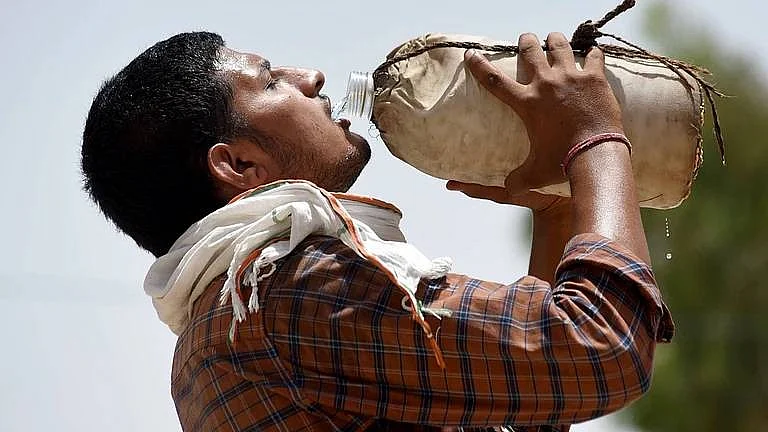As disasters intensify each year, India showcases heat action plan at UN
IPCC has repeatedly warned that India is among the countries most vulnerable to impact of rising global temperatures

With compounding effects of rising heat intensifying each year, India has now presented its national strategies to address extreme heat — including the implementation of Heat Action Plans, digital tools for last-mile alerts, and low-cost cooling solutions — at a high-level event organised during the 80th anniversary session of the United Nations General Assembly in New York.
Sibi George, secretary (west) in the Ministry of External Affairs, represented India at the High-Level Solutions Dialogue on Early Warning and Extreme Heat, held on Monday. The event brought together global representatives to discuss practical solutions for managing heat-related disasters and enhancing early warning systems.
Speaking at the session, George reaffirmed India’s commitment to collaborate with international partners to build resilience against climate-induced disasters, particularly in developing countries.
“India is ready to work with partners to support the Global South in addressing environmental disasters triggered by rising global temperatures,” the Ministry of External Affairs stated in a post on social media.
He underlined India’s focus on expanding early warning capabilities, reducing disaster risks, and improving preparedness measures to enhance global climate resilience. These steps, he noted, are central to India’s efforts to support both domestic adaptation and international cooperation.
India’s participation in the dialogue aligns with its broader climate policy goals under the Paris Agreement and its leadership role in initiatives such as the International Solar Alliance and the Coalition for Disaster Resilient Infrastructure. The country has also committed to achieving net zero carbon emissions by 2070.
The IPCC (Intergovernmental Panel on Climate Change, in its Sixth Assessment Report) has warned that India is among the countries most vulnerable to the impact of rising global temperatures, particularly extreme heat.
The IPCC predicts that with continued global warming, India will face more frequent and intense heatwaves. These conditions pose severe health risks, especially for low-income communities, outdoor workers, the elderly, and those with pre-existing health conditions. Urban areas are particularly exposed due to the “urban heat island” effect, which can raise local temperatures significantly.
It stresses the urgent need for comprehensive adaptation measures such as early warning systems, better city planning, and affordable access to cooling technologies. India’s efforts, as outlined at the UN session, reflect these recommendations and aim to shield millions from the escalating risks of climate-driven heat extremes.
Follow us on: Facebook, Twitter, Google News, Instagram
Join our official telegram channel (@nationalherald) and stay updated with the latest headlines
